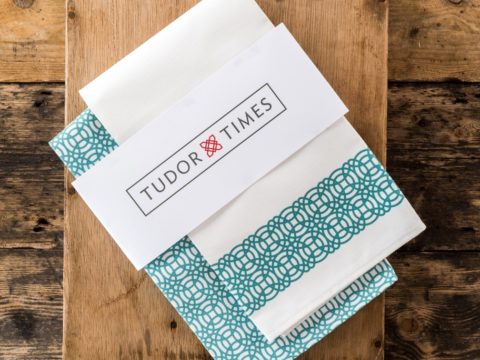The Marriages of Mary Tudor
Chapter 3 : Widowed
Less than two months later, on the evening of 1st January 1515, Louis XII was dead. Some claimed that Louis had died of ill health, others reporting that he was sent to his grave from his over enjoyment of his beautiful young wife. Perhaps it was a combination of both that brought about the King’s death, but whatever the reason Mary was now a widow. She was sent to the Hotel du Cluny to mourn her husband’s death. She was dressed in white from head to toe which was the French colour of mourning and thus Mary gained the name La Reine Blanche. It was here, locked away from the world, that Mary Tudor took the direction she wanted for her life into her own hands.
Mary had already made her brother promise that should Louis die before her she could chose her second husband and that is exactly what Mary was about to do. Upon hearing of the death of Louis XII, Henry VIII sent Charles Brandon, Duke of Suffolk, Nicholas West and Sir Richard Wingfield to regain as much of Mary’s dowry as possible and to bring Mary home.
However, before Brandon left England, Henry instructed him not to act foolishly and marry Mary while in France, but to wait until both had returned to England. It could have been that Henry did intend to fulfil the promise he made to his sister and knowing of her affection for Brandon would allow her to marry him, but not until they returned home. However, it is more likely that Henry agreed to the marriage at face value, but when Mary returned home he would renege on his promise that she could choose her own husband and would seek a more diplomatic and advantageous marriage for her elsewhere. Mary, of course, was not going to accept this.
Shortly before Brandon arrived in Paris, two friars from England met with Mary. Their mission was to turn Mary’s mind against Brandon. They told Mary that the council would never consent to her marrying Brandon and in addition both Brandon and Thomas Wolsey had performed witchcraft in order to manipulate the English king to their will. They also stated that Brandon had used witchcraft to create a disease in the leg of Henry’s Groom of the Stool, William Compton.
What is most interesting about these two incidents is that it was known that both Mary and Brandon had strong feelings for one another.
While this was happening Mary had already written to her brother reminding him of the promise that he made to her by the waterside at Dover,
“Sir, I beseech your grace that you will keep all the promises that you promised me when I took my leave of you by the w[ater s]ide. Sir, your grace knoweth well that I did marry for your pl[easure a]t this time, and now I trust that you will suffer me to [marry as] me l[iketh fo]r to do ; for, sir, I k[now that yo]u shall have _s that they _ for I assure your grace that [my mi]nd is not there where they would have me, and I trust [your grace] will not do so to me that has always been so glad to fulfil your mind as I have been: wherefore I beseech your grace for to be good lord and brother to me; for, sir, an if your grace will have gran[ted] me married in any place, [sav]ing whereas my mind is, I will be there, whereas your grace nor no other shall have any joy of me: for, I promise your grace, you shall hear that I will be in some religious house, the which I think your grace would be very sorry of, and all your realm. Also, sir, I know well that the King, that is [my so]n, will send to your grace by his uncle the duke of _ for to ma[rry me here, but I tru]st you[r grace ... I sha]ll never be merry at my heart, (for an ever that I d[o marry while I live). I trow your grace knoweth as well as I do, and did before I came hither, and so I trust your grace will be contented, unless I would never marry while I live, but be there where never [no] man nor woman shall have joy of me; wherefore I beseech your grace to be good lord to him and to me both, for I know well that he hath m[et ma]ny hindrances to your grace of him and me both. Wherefore, an your grace be good lord to us both, I will not care for all the world else, but beseech your grace to be good lord and brother to me, as you have been here aforetime, f[or in you] is all the trust that I have in this world after God. No m[ore from m]e at this [time]. God send your grace [long life an]d your heart’s de[sires]. By your humble and loving sister, Mary Queen of France.” (Mumby 1913, p. 310–311).
Mary’s letter was not just a simple reminder to her brother that he had promised to let her marry a man of her own choosing should Louis XII die before her, it was an ultimatum! Let her marry where her heart desires or she would remove herself to a religious house where she would not be available to marry anyone.
Mary, Queen of France
Family Tree


